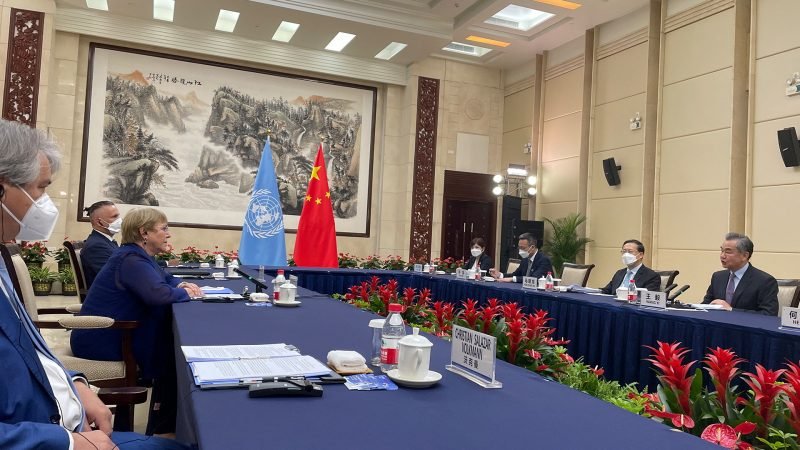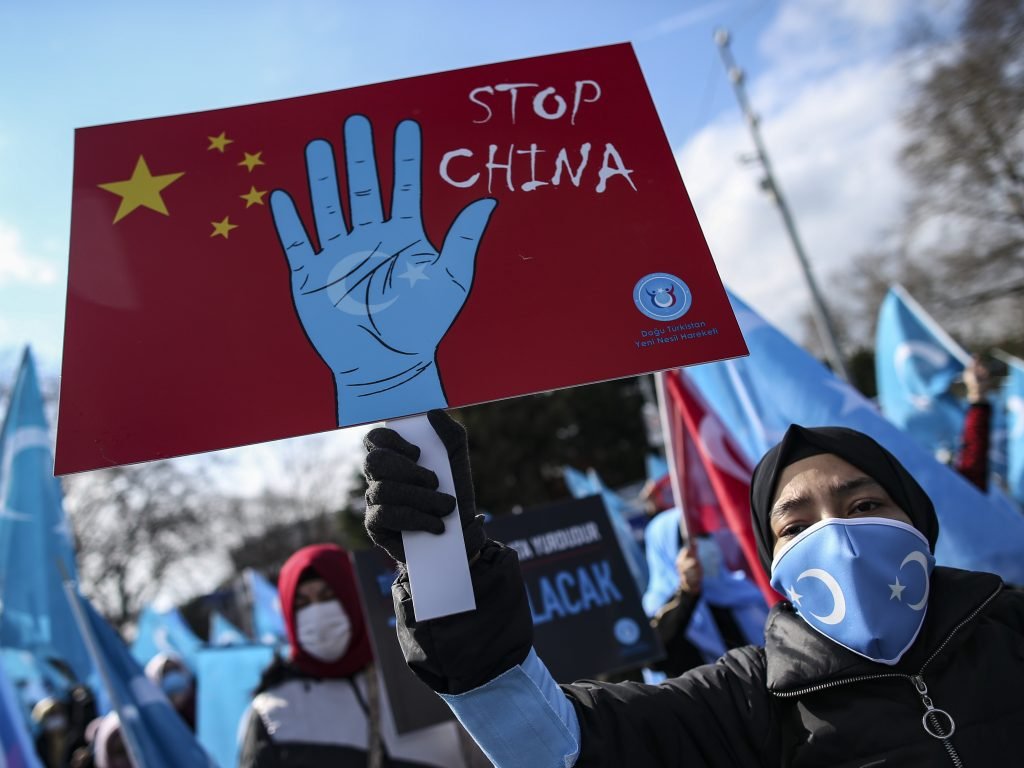U.N. rights chief says she urged China to review counter-terrorism policies

U.N. human rights chief Michelle Bachelet, whose rare visit to China was criticised by rights groups and Western countries, said she urged Beijing to review its counter-terrorism policies to ensure they comply with international human rights standards.
Bachelet reiterated, however, that her six-day trip, which ended on Saturday and included a visit to the western region of Xinjiang, was not an investigation into China’s human rights policies but an opportunity to engage with the government.
Bachelet started her China trip, the first by a U.N. Human Rights High Commissioner in 17 years, on Monday in the southern city of Guangzhou before heading to Xinjiang.
Her office said last year it believed Uyghurs in Xinjiang had been unlawfully detained, mistreated and forced to work.
“I have raised questions and concerns about the application of counter-terrorism and deradicalisation measures under broad application, particularly the impact on the rights of Uyghurs and other predominantly Muslim minorities,” she said during an online press briefing on Saturday.
Bachelet’s access was limited as China arranged for her to travel in a “closed-loop” – isolating people within a virtual bubble to prevent the spread of COVID-19 – with no foreign press.
Rights groups and Western countries worry that China will use her trip as an endorsement of its rights record. U.S. State Department spokesman Ned Price said on Tuesday it was “a mistake to agree to a visit under the circumstances”.
Bachelet said she raised with the Chinese government the lack of independent judicial oversight on the operation of the centers and allegations of the use of force, ill-treatment and severe restrictions on religious practice.
During the media briefing, Bachelet also described as “deeply worrying” the detention in Hong Kong of activists, lawyers and journalists.

Uyghurs urged UN rights chief to ask hard questions in Xinjiang
Prior to the visit, Uyghurs urged Bachelet to avoid falling victim to a public relations stunt. The ruling Communist Party is accused of detaining over one million Uyghurs and other Muslim minorities in the far-western region as part of a years-long security crackdown the United States has labelled a “genocide”.
China initially denied the existence of any detention camps in Xinjiang but in 2018 said it had set up “vocational training centers” necessary to curb what it said was terrorism, separatism and religious radicalism in the region. In 2019, Xinjiang Governor Shohrat Zakir said all trainees had “graduated”.
China vehemently denies the allegations, calling them the “lie of the century”.


















